Manhattan Melodrama

Brief Synopsis
Cast & Crew
W. S. Van Dyke
Clark Gable
William Powell
Myrna Loy
Leo Carrillo
Nat Pendleton
Film Details
Technical Specs

Synopsis
Blackie Gallagher and Jim Wade lose their parents when the General Slocum sinks in New York harbor, but they are rescued by Father Joe. Because he has lost his own son, kindly Poppa Rosen takes the boys in, but a few years later he, too, is killed, trampled by police horses used to break up a riot against the Russian agitator Leon Trotsky. While Blackie grows up gambling and playing, Jim studies hard and becomes an attorney. During the 1920s, Blackie runs a gambling club while Jim has been elected district attorney. Blackie worships Jim, even though they are on opposite sides of the law. When Blackie's mistress Eleanor meets Jim, she is also impressed, and tries to convince Blackie to stop gambling and settle down with her. He lets her go, not wanting to change his life, and wishes Jim luck when he marries Eleanor some months later. After gambler Manny Arnold is shot, suspicion rests on Blackie. Because Spud, their childhood pal, has accidentally left Jim's coat at the scene of the crime, Blackie has Spud bring an exact duplicate that he has had his tailor make to Jim, thus mistakenly convincing Jim that Blackie is innocent. Soon Jim runs for governor, but his assistant, Richard Snow, tries to pressure him by indicating that the Arnold case makes Jim look like he is mixed up with murderers. Eleanor tells Blackie about it and Blackie murders Snow in a men's room, unaware that a man sitting outside is not blind, as he pretends, and reports Blackie's crime to the police. During the gubernatorial campaign, Jim must try Blackie for murder. Though convicted, Blackie is still proud of Jim's honesty, and is happy when Jim is elected governor. Eleanor pleads with Jim to pardon Blackie, but he refuses, even after she tells him that Blackie killed Snow to help him. Jim changes his mind after she leaves him though and visits Blackie, but Blackie says that he would rather be electrocuted than get life in prison. After Blackie's death, Jim resigns as governor and Eleanor embraces him after he leaves the state assembly.

Director
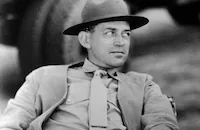
W. S. Van Dyke
Cast

Clark Gable

William Powell

Myrna Loy

Leo Carrillo
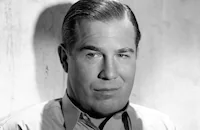
Nat Pendleton
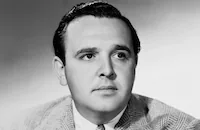
George Sidney

Isabel Jewell
Muriel Evans
Thomas Jackson

Frank Conroy
Noel Madison
Jimmy Butler

Mickey Rooney
Shirley Ross
Sam Mcdaniel
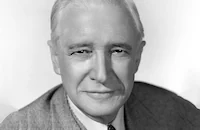
Samuel S. Hinds
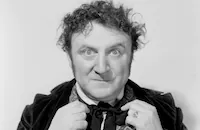
Herman Bing

Leonid Kinskey
Leo Lange
Landers Stevens
Harry Seymour
William N. Bailey
King Mojave
W. R. Walsh
Charles R. Moore
John Marston
Lew Harvey
Billy Arnold
Jim James
Stanley Taylor
James Curtis

Edward Van Sloan
Jay Eaton
Harrison Greene
Leslie Preston
William Stack

Emmett Vogan
Sherry Hall

Lee Phelps
Charles Dunbar
John M. Bleifer
Al Thompson
G. Pat Collins
Wade Boteler
James C. Eagles
Don Brody
Ralph Mccullough
Eddie Hart

George Irving
Garry Owen
Burt Russell
Dixie Lotten
Pepi Sinoff
Donald Haines
Bert Sprotte
William Irving
Vernon Dent
Jack Lipson
Oscar Apfel
Carl Stockdale
Lee Shumway
Jack Kenny
Henry Roquemore
Alexander Melesh
Curtis Benton
Stanley Blystone
William Augustin
Crew
Dr. William Axt
Arthur Caesar
George Cukor
Oliver H. P. Garrett
Cedric Gibbons
Lorenz Hart
James Wong Howe
Ben Lewis
Joseph L. Mankiewicz
Paul Marquardt
Maurice De Packh
Richard Rodgers
Les Selander
David O. Selznick
Douglas Shearer
Dolly Tree
Slavko Vorkapich
Edwin B. Willis
Joseph Wright

Photo Collections
Videos
Movie Clip





Trailer
Hosted Intro
Film Details
Technical Specs

Award Wins
Best Writing, Screenplay
Articles
Manhattan Melodrama
The winning storyline of Manhattan Melodrama, boyhood pals who remain friends despite being on opposite sides of the law, has since become a classic movie plot. In Manhattan Melodrama, Gable plays Blackie a gambler who resorts to murder to protect a friend. William Powell is his boyhood pal, now a DA, who must choose between friendship and his own conscience. This plot has often been recycled into new movies with the same basic premise. The story was remade as Northwest Rangers in 1942, and though not called a remake, the movie Angels With Dirty Faces (1938) shares a very similar plot.
Writer Arthur Caesar is credited with the story for Manhattan Melodrama and was the only one of the film's three screenwriters (the other two were Oliver H.P. Garrett and Joesph L. Mankiewicz) to receive the Oscar®. Caesar was something of a wild card, even by Hollywood standards. He had written a play called Napoleon's Brother that was made into director John Ford's first talkie in 1928. Caesar was put under contract by Fox, but apparently his biting sense of humor eventually cost him his job. Darryl F. Zanuck, then at Warner Bros., seemed more able to tolerate Caesar's outspokenness than others and put him to work. And Caesar had success at Warner Bros. turning out winners like The Heart of New York (1932), the Joe E. Brown vehicle, Fireman Save My Child, and his Oscar® winning Manhattan Melodrama.
One interesting side note, Manhattan Melodrama was the film John Dillinger saw before being gunned down outside the Biograph Theater in Chicago.
Producer: David O. Selznick
Director: W.S. Van Dyke
Screenplay: Arthur Caesar (story), Oliver H.P. Garrett, Joseph L. Mankiewicz
Cinematography: James Wong Howe
Film Editing: Ben Lewis
Original Music: Richard Rodgers (song)
Cast: Clark Gable (Edward "Blacki" Gallagher), William Powell (Jim Wade), Myrna Loy (Eleanor Packer), Leo Carrillo (Father Joe), Nat Pendelton (Spud).
BW-91m. Closed captioning.
by Stephanie Thames

Manhattan Melodrama
Quotes
Trivia
This is the movie John Dillinger was exiting at the Biograph Theater in Chicago when he was ambushed by the FBI and gunned down. He was with female companions Polly Hamilton and Anna Sage (the woman in red).
After Dillinger was killed, William Randolph Hearst had the statement "A Cosmopolitan Production" removed from the credits of all prints. The print in the Turner library does not contain that credit. George Cukor was assigned as director for additional scenes after the preview showing on 14 April 1934, because director Van Dyke had already started on his next movie, The Thin Man. Lorenz Hart was asked to write more commercially appealing lyrics to "The Bad in Every Man" after this movie was released. The result was "Blue Moon" which was copyrighted under that title in December 1934.
Notes
A working title of the film was Three Men. Daily Variety lists a preview running time of 100 min. A Hollywood Reporter news item on April 5, 1934 noted that U.S.C. football star "Cotton" Warburton was to make his film acting debut in the picture, however, his participation in the released film has not been confirmed. According to another Hollywood Reporter news item, after the April 14, 1934 preview showing, George Cukor was assigned to direct additional scenes for the picture because W. S. Van Dyke had already begun working on his next assignment, The Thin Man (see below). The song performed by Shirley Ross in "The Cotton Club" sequence was originally written by Richard Rodgers and Lorenz Hart for Jean Harlow to sing in the film Hollywood Party, and was called "Prayer." Neither Harlow nor the song appeared in the released version of Hollywood Party, and Hart wrote new lyrics for the version included in Manhattan Melodrama. According to a modern source, Jack Robbins of M-G-M's music publishing company reportedly liked the tune so much that he asked Hart to write more commercially appealing lyrics. The result became the song's more familiar words under its final title, "Blue Moon." The song was copyrighted under that title in December 1934. According to information in the file on the film contained in the MPAA/PCA Collection in the AMPAS Library, the film was approved for exhibition in 1934 by the Hays Office, although some objections were raised by the office in connection with the riot during the Leon Trotsky speech early in the film and a general anti-police attitude in the picture. Specific objections were raised prior to production to any inference that Myrna Loy's character was a "moll" or "mistress." The Hays Office requested that her character appear to be a "sweetheart." They also suggested that any references to the splitting of "Blackie's" trousers before his execution and the dimming of lights during the execution were "censorable" in most territories. Although objections were also raised about the line of dialogue in which just prior to his execution "Blackie" orders a black lace nightgown for his girl friend, saying "Black for me and lace for the next guy," the line was retained. After the film's preview, Will H. Hays sent a memo to Joseph I. Breen in the office in Los Angeles and said that the way Gable spoke the line it sounded like "Black for me and lays for the next guy," causing considerable laughing in the theater. Hays added in the memo: "This has gone now, but it shows how careful we have to be [in the future]." When the picture was re-issued in 1937, it was issued a Purity Seal and was accepted without eliminations in most states and territories. The picture was one of M-G-M's biggest hits of 1934 and appeared on several "ten best" lists. It marked the first time that Loy appeared onscreen with either Gable or William Powell, with whom she made numerous pictures throughout the next decade, and the only time in which Gable and Powell co-starred. In a memo written by producer David O. Selznick, reprinted in a modern source, Selznick stated that he had brought Powell to M-G-M over the protests of other executives at the studio, and said that the film, which cost very little to produce was "an enormous moneymaker." Arthur Caesar won an Academy Award for Best Story for the film. According to modern sources, corroborated by photographs from contemporary newspapers, notorious gangster John Dillinger was shot by FBI agents on July 22, 1934 in front of the Chicago movie theater in which he had just seen this film. Gable appeared on M-G-M's Good News radio program on May 5, 1938 to recreate the character in an abridged version of the story. Manhattan Melodrama was remade by M-G-M in 1942 under the title Northwest Rangers, directed by Joseph Newman and starring James Craig and William Lundigan. That film had a Canadian setting.
















